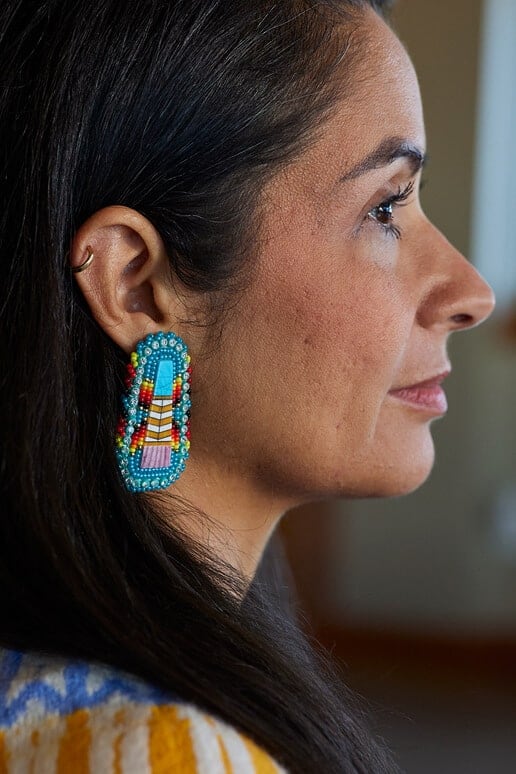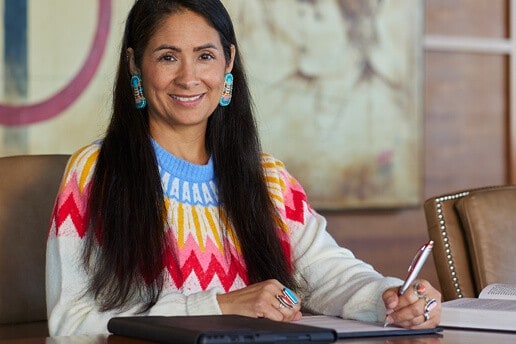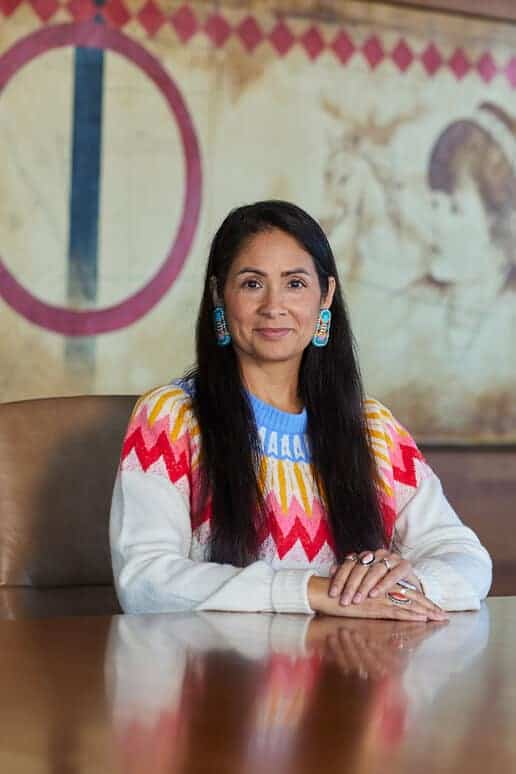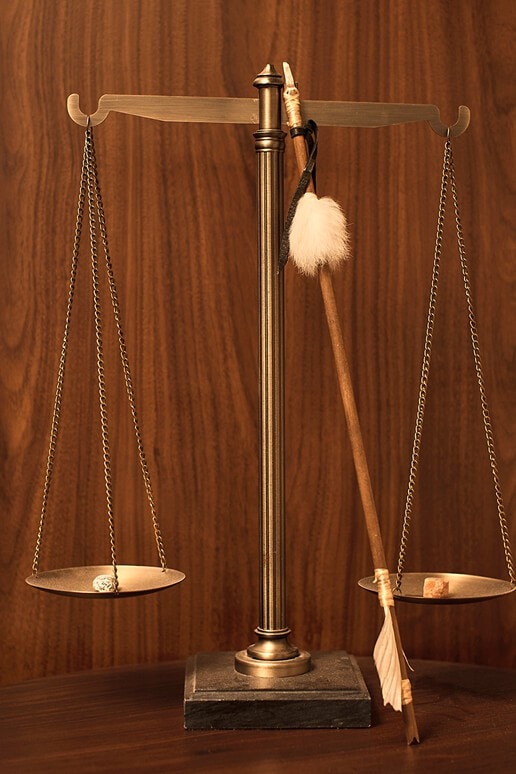Gina South, Protector

Growing up in Owasso, Oklahoma, Gina South knew the comfort, love, and connection of a close family and her Native community.
Her roots grew deep in Oklahoma, and years later, those roots would bring her back home to serve the Choctaw people as the Juvenile Division Chief for the Choctaw Nation’s Office of Prosecution.
When she was 14, Gina’s family moved from Owasso to a town in North Alabama called Florence. Leaving the community she loved was a difficult adjustment.
“We didn’t have any connections or roots to people in Alabama,” said Gina. “There were no other Indians there that we knew of. There were no other Native families.”
Despite the distance, Gina’s mother worked hard to make sure Gina and her brothers stayed connected to their Choctaw heritage. She told the children stories about their extended family — who they were and where they came from.
Gina’s mother even taught classes on what it was like to be a Choctaw person.
“Kids there would ask ‘Do you live in a teepee?'” Gina said with a laugh. “And of course, we didn’t. But it was important for my mom to be able to talk to our classmates and explain that we were just like any other family.”
Another way young Gina stayed tethered to the Choctaw culture was through sewing. She learned how to make her own regalia, and it became something she and her mother did together. The skills she learned from her mother had been passed down from her grandmother, Ella Lynn, who learned to sew in an Indian boarding school.
Today, Gina and her mother still sew together. They make ribbon skirts and other Native crafts and clothing.
“The ribbon skirt is really important. It represents the fact that you are Native and that you’re part of something greater than yourself,” Gina said.
That sentiment is certainly true for those who work with Gina in the Office of Prosecution. For Child Abuse Awareness Month, she taught her colleagues to make their own ribbon skirts and ribbon shirts in shades of blue to honor victims and survivors of child abuse. Helping children and their families is central to the work Gina does every day.
It seems that law school was always in the cards for Gina, too.
“I think I was good at arguing as a child,” she said, “and my parents did encourage me to go to law school for that reason.”
As an attorney, Gina was drawn to juvenile cases because she wanted to help vulnerable children whose voices need to be heard.
"I thought about my grandma and about her sister and about all the children and what they experienced at Indian boarding school. Those kids should have had a voice, and they should have been protected."


But the desire to take care of children who need nurturing homes didn’t end at the close of the workday for Gina and her husband, Jason. Since high school, Gina and Jason knew they wanted to have a family and provide a safe place for children. In addition to their three children, Duncan, Crispin, and Liam, they opened their home and their hearts to foster children.
Although being a foster family has plenty of challenges, Gina is thankful for the training and support available to prepare them for children with different backgrounds, including some that may be traumatic.
“It was a natural thing for us to apply to be foster parents. And being able to be foster parents and provide a safe home for children has been a fulfillment of our family’s dreams. It’s been a wonderful experience,” she said.
December of 2011 changed the South family’s lives forever. A nine-month-old baby girl named Juliet came to stay with them. In August of the following year, Juliet became a permanent member of the South family when Gina and Jason adopted her.
“She has been a joy and a blessing. She’s brought a lot of excitement into our house,” said Gina.
In 2017, the South family moved to North Texas from Alabama. For a long time, Gina’s dream had been to work within the Choctaw Nation where she could serve her tribe, and in 2020, that dream became a reality. The Choctaw Nation’s judicial system was preparing for the McGirt decision to come down from the U.S. Supreme Court and expanding the existing court system was critical for handling the inevitable increase in cases, including cases that involve Indian Child Welfare.
One of Juvenile Division’s goals is to avoid separating children from their families and their culture when they can. A major win for the tribes came when the U.S. Supreme Court upheld the Indian Child Welfare Act in 2023. The law protects the sovereign right of tribes to seek placement with Native foster or adoptive families for Native children who have been removed from their homes.
“In my work now, it’s something that’s always in the back of my mind that we have to keep children connected to their family as much as possible, and that it’s important to keep children connected to their tribe,” said Gina.
When her children were small, Gina made sure they all understood the importance of being Choctaw. She cooked traditional foods and taught them the importance of the ingredients and how to prepare them. They even set up a tent in the yard for “Choctaw Day,” where other children in the neighborhood would come by to make miniature chukkas and learn the stories about how their ancestors lived. Sharing their culture with others became a way for them to grow closer to their own heritage and history.
"Being Choctaw means being part of a family, and it's being part of a bigger family that extends beyond just your own household. And it's exactly what I want my children to grow up knowing."

Together, We're More
More Than a Protector
As an attorney for the Choctaw Nation, as well as a foster and adoptive parent, Gina South has dedicated her life to protecting children.